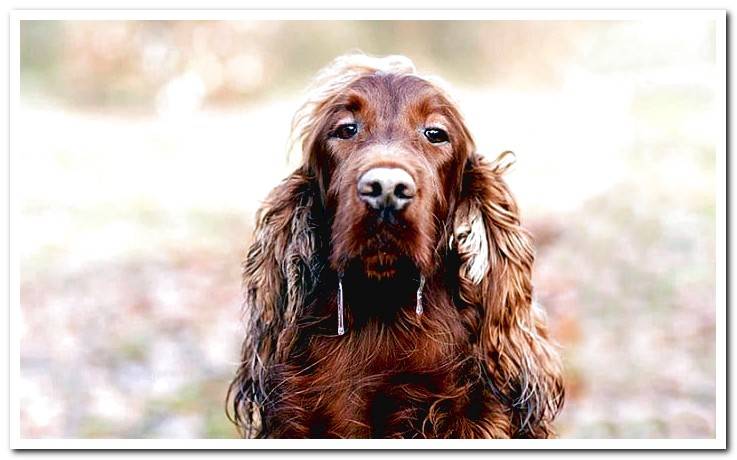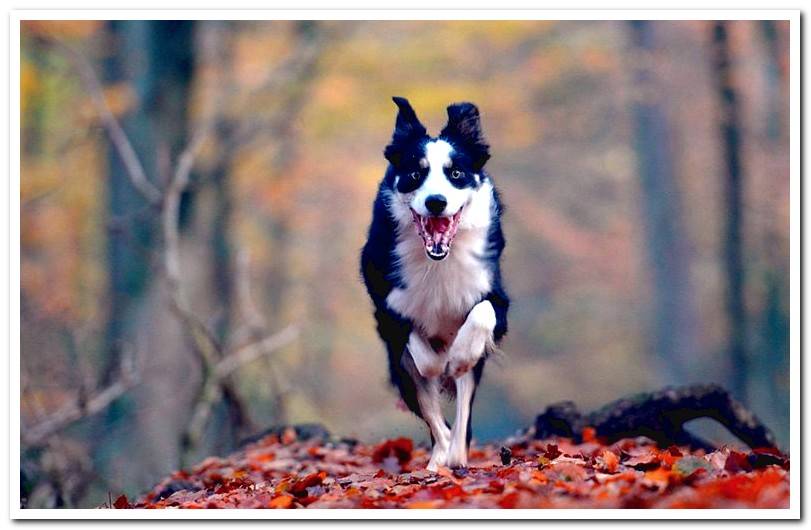
Have you noticed that your dog drools a lot? So you need to know the reasons for this behavior and the possible solutions. Some breeds tend to drool due to jaw morphology and this is normal, but when salivation is excessive and accompanied by other signs, it may be due to other causes.
If your dog is drooling a lot from food, it is normal. But if you drool suddenly or at certain times, such as when you’re nervous, traveling by car, or exercising, it can be a sign that something is wrong with your health.
Index of contents
- 1 Ptialism in dogs
- 2 My dog drools a lot when he runs
- 3 My dog drools and has a bad smell in his mouth
- 4 My dog drools foam
- 5 My dog drools and trembles
- 6 My dog drools and cries
- 7 Other causes of excessive salivation in dogs
- 8 How to determine the cause correctly?
Ptialism in dogs
Ptialism is excess salivation, when it occurs as a result of a stimulus. Some dog breeds, such as the Great Dane and the Bulldog, have a jaw of lips and a droopy mouth, which produces a constant drool. In this case, you should not worry.
If your dog does not belong to these breeds and suddenly starts drooling, you need to know the reasons to go to the vet and find the solution.
These are the main situations and the reasons for a dog to drool a lot:
My dog drools a lot when he runs
Does your dog start squirting drool when he’s having fun with you in the park, and even while playing at home? If your answer is yes, there are two reasons for this:
- He is very excited.
- It is dehydrated.
To rule out the correct option, look for other signs of dehydration, such as wheezing or white gums to the touch. Also, offer water. If he continues to drool, but it only happens when he plays, it may be due to the emotion that this causes him.

My dog drools and has a bad smell in his mouth
Excessive salivation can occur when there is a problem in the oral cavity, such as illness or a stuck object. The main causes are:
- Gingivitis
- Stomatitis
- Tumors
- Inflammation of the gums
- Broken tooth
- Object stuck in teeth, gums, or stomach
When drooling is accompanied by a bad smell, the chances are high that is due to a infectious disease. You should go to your vet immediately to start a treatment, since problems of this type are dangerous and painful for your dog.
In case something is trapped in your teeth, you can try removing it, but very carefully. Remember that your dog will be sore and could bite you.
When the source of the drool is in your dog’s mouth, pain and discomfort will prevent him from eating; In addition, excess saliva will dehydrate it. Both are risky for your pet’s life and require medical attention.
My dog drools foam
Rabies is an infectious disease caused by a family virus Rhabdoviridae and may be the cause of your dog drooling foam. It is spread through bites or scratches from other pets.
Your symptoms are:
- Nervousness
- Fatigue
- Fever
- Aggressiveness
- Light sensitivity
- Salivation
- Vomiting
- Water phobia
- Seizures
- Paralysis
Rabies is deadly in dogs and is transmitted to humans. If you suspect that your dog suffers from this disease, see your vet urgently.
- Complete information on rabies in dogs

My dog drools and trembles
Poisoning and poisoning are other causes of your dog drooling. Both occur when the animal have contact with a toxic or allergic substance, either when ingested or by the cutaneous and respiratory routes.
The signs of poisoning are:
- Vomiting
- Diarrhea
- Disorientation
- Stiff legs
- Fever
- Cardiac arrhythmia
- Difficulty breathing
- Cough
- Tremors
- Dilation of the pupils
On the other hand, an intoxicated dog will present:
- Excessive salivation
- Tremors
- Hypothermia
- Cramps
- Inflammation of the skin
- Nervousness
- Diarrhea
- Vomiting
As you can see, both problems present similar symptoms, so medical attention should be immediate. Also, do not force your dog to drink milk or oil if you suspect poisoning, as you will only cause the toxic compounds to be absorbed by its body at a faster rate.
My dog drools and cries
Dogs are curious and this can sometimes lead to injury. If you allow your dog to play and browse around in parks or places with trees, it is possible that he will get hurt or be bitten by an insect.
The pain caused by one of these two situations can be the reason that your dog has a lot of drool and is down, it can even “cry”, a kind of moan that you have surely heard.
Also, if you have been bitten by a poisonous insect, the slime can be caused by poisoning. In both cases, veterinary care is essential.
Other causes of excessive salivation in dogs
Drooling or excessive salivation is common in dogs in many situations. These are other of its possible causes:
- Smell of food: some dogs drool a lot when they smell their favorite food.
- Sickness: Whether caused by illness or indigestion, nausea can lead to your dog drooling.
- Use of relaxants: Medications formulated to relax the dog can sometimes cause salivation. If this is accompanied by shortness of breath, see your vet immediately.
How to determine the cause correctly?
Only the vet will be able to tell you what is causing your dog to drool excessively, based on a physical exam and what you can tell him about his mood. These studies include a review of the mouth and teeth, blood and urine tests, and others that the specialist deems necessary.
Possible solutions and treatments depend
on the cause. In all cases, it is important that you pay attention to the symptoms and see the specialist as soon as possible.
